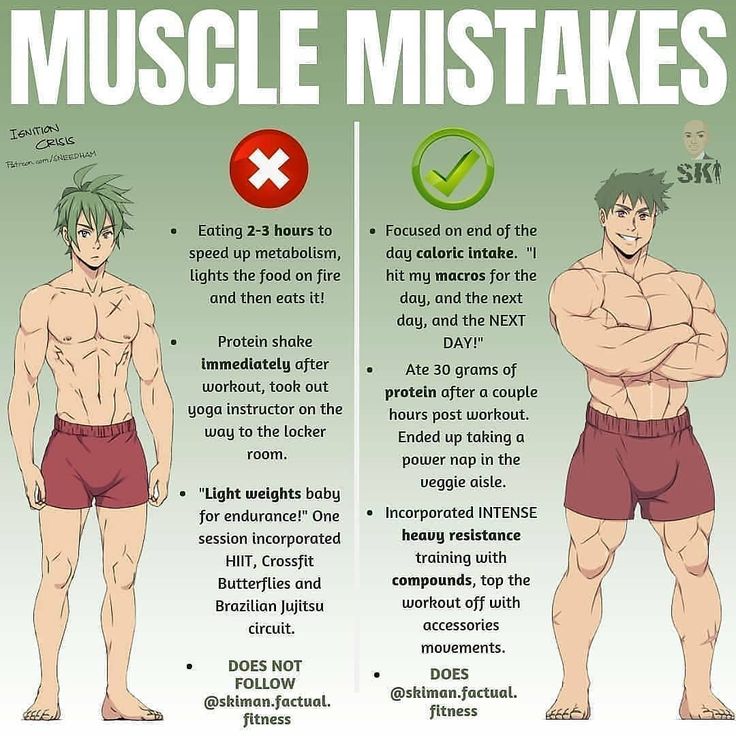

Common mistakes consistently sabotage muscle growth progress, frustrating individuals striving for physique enhancement. These errors, often subtle and easily overlooked, can significantly impede gains and prevent athletes from reaching their full potential. Understanding these mistakes is crucial for tailoring effective strategies and optimizing progress. This comprehensive guide dives into the most prevalent blunders in muscle building, exploring their causes, consequences, and practical solutions. We’ll delve into issues related to improper training, insufficient rest, nutrient deficiencies, and recovery strategies, equipping you with the knowledge to identify these stumbling blocks and chart a course for success. This article provides a structured approach to overcoming these common mistakes and provides practical strategies for maximizing muscle growth potential.
Improper Training Techniques
Neglecting Progressive Overload
The fundamental principle of muscle growth is progressive overload. Essentially, your muscles adapt to the demands placed on them. If you consistently perform the same exercises and repetitions, your muscles will plateau and stop growing. To avoid this, systematically increase the weight, reps, sets, or difficulty of your workouts over time. This gradual increase in stress challenges the muscles and stimulates hypertrophy (muscle growth).
Focusing Solely on Compound Exercises
While compound exercises are crucial for overall strength and muscle development, isolating exercises are just as important. Isolation exercises target specific muscle groups, promoting better muscle activation and definition. A well-balanced program incorporates both compound and isolation exercises to target all muscle groups effectively.
Incorrect Form and Technique
Maintaining proper form throughout your workouts is essential. Poor form can lead to injuries and can prevent your muscles from receiving the necessary stimulus for growth. Prioritizing proper form over heavy weight is always a smart move, even for experienced lifters. Consider working with a qualified coach to ensure your technique is sound and that you’re performing exercises correctly.
Related Post : Why Consistency Matters More Than Intensity in Muscle Building
Inadequate Warm-up and Cool-down
Skipping warm-up and cool-down routines can lead to decreased performance and increased injury risk. Warm-ups prepare your muscles for the demanding workout ahead, improving blood flow and range of motion. Cool-downs promote muscle recovery and reduce the risk of delayed onset muscle soreness (DOMS). Include dynamic stretches, light cardio, or static stretches in your warm-up and cool-down routines.
Insufficient Rest and Recovery
Inadequate Sleep
Sleep is crucial for muscle recovery and growth. During sleep, your body repairs and rebuilds muscle tissue damaged during workouts. Lack of sleep can negatively impact hormone production, recovery time, and overall well-being, ultimately affecting muscle growth.
Nutritional Deficiencies
Inadequate Protein Intake
Protein is essential for muscle repair and growth. Insufficient protein intake can hinder muscle development. Ensure you’re consuming enough protein throughout the day, which can be achieved through various sources such as lean meats, poultry, fish, eggs, dairy products, and legumes. Consult a nutritionist to determine your personalized protein requirements.
Insufficient Caloric Intake
Muscle growth requires a caloric surplus. If your caloric intake isn’t sufficient to support your training volume, your body won’t have the resources needed to build and repair muscle tissue.
Imbalance of Macronutrients
Maintaining a balanced intake of macronutrients (carbohydrates, proteins, and fats) is essential for overall health and optimal muscle growth. A well-balanced meal plan ensures that your body receives the necessary building blocks for muscle growth and overall well-being.
Poor Recovery Strategies
Ignoring Active Recovery
Active recovery involves low-intensity activities such as light cardio or stretching to promote blood flow, reduce muscle soreness, and aid in recovery. Incorporating active recovery into your routine can accelerate muscle recovery and reduce the likelihood of injury.
Skipping Mobility Work
Adequate mobility work improves range of motion and reduces stiffness in your joints and muscles, which can lead to injury prevention and pain relief. Stretching or other mobility routines can also assist with recovery.
Neglecting Proper Hydration
Proper hydration is essential for muscle function and recovery. Water is vital for transporting nutrients and removing waste products from muscles. Staying properly hydrated before, during, and after workouts is crucial for peak performance and optimal recovery.
Psychological Factors Affecting Muscle Growth
Inadequate Stress Management
Chronic stress can disrupt hormone production, negatively impacting muscle growth. Managing stress through mindfulness, meditation, or relaxation techniques can positively affect recovery and muscle growth.
Lack of Motivation and Consistency
Consistency is key to achieving any fitness goal, including muscle growth. Establishing a routine and sticking to it despite obstacles is vital for long-term success.
Negative Self-Talk and Limiting Beliefs
Positive self-talk and belief in your ability to achieve your goals are essential for motivation and perseverance. Challenge any limiting beliefs that may hinder your progress.
In summary, common mistakes like improper training, insufficient rest, nutrient deficiencies, and poor recovery strategies can seriously hinder muscle growth progress. By addressing these issues and adopting a well-rounded approach that incorporates proper training techniques, adequate rest and recovery, balanced nutrition, and stress management, individuals can unlock their full potential for muscle growth. Remember that consistency and patience are key to achieving sustainable results. Ready to finally break through plateaus and achieve your physique goals? Click here to download the ultimate guide to muscle growth.